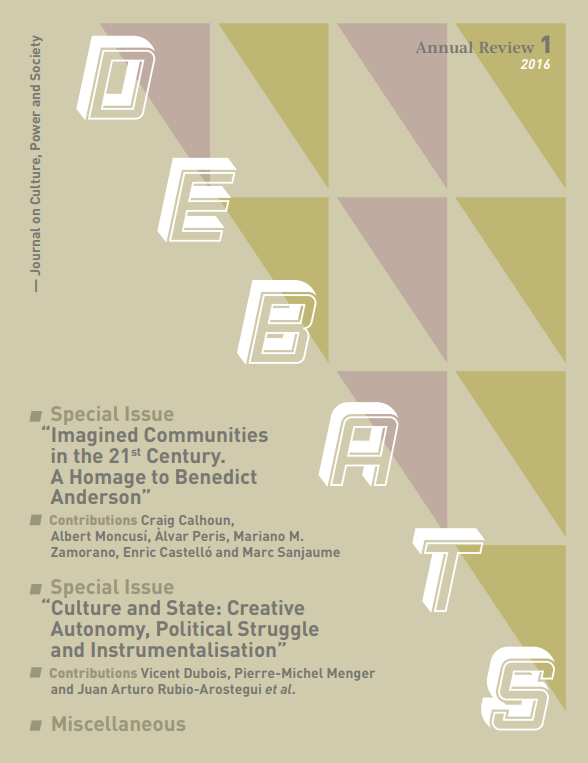The Importance of Imagined Communities – and Benedict Anderson
Resum
Benedict Anderson’s remarkable book Imagined Communities reshaped
the study of nations and nationalism. Strikingly original, it broke
with previous over-emphasis on the European continent and falsely
polarized arguments as to whether nations were always already
in existence or mere epiphenomena of modern states. Imagined
Communities stimulated attention to the dynamics of socially and
culturally organized imagination as processes at the heart of political
culture, self-understanding and solidarity. This has an influence beyond
the study of nationalism as a major innovation in understanding
‘social imaginaries’. Anderson’s approach, however, maintained
strong emphases on material conditions that shape culture, and on
institutions that facilitate its reproduction — from newspapers and
novels to censuses, maps, and museums.
Descàrregues
Descàrregues
Publicades
Com citar
Número
Secció
Llicència
Sense perjudici del que disposa l'article 52 de la Llei 22/1987 d'11 de novembre de Propietat Intel·lectual, BOE del 17 de novembre de 1987, i conforme a aquest, els/les autors o autores cedeix/en a títol gratuït els seus drets d'edició, publicació, distribució i venda sobre l'article, per tal que siga publicat a Debats. Revista sobre cultura, poder i societat.
Debats. Revista de cultura, poder i societat es publica sota el sistema de llicències Creative Commons segons la modalitat “Reconeixement – NoComercial (by-nc): Es permet la generació d’obres derivades sempre que no se’n faça un ús comercial. Tampoc no es pot fer servir l’obra original amb finalitats comercials”.
Així, quan l’autor/a envia la seva col·laboració, accepta explícitament aquesta cessió de drets d’edició i de publicació. Igualment autoritza Debats. Revista de cultura, poder i societat la inclusió del seu treball en un fascicle de la revista perquè es puga distribuir i vendre.











